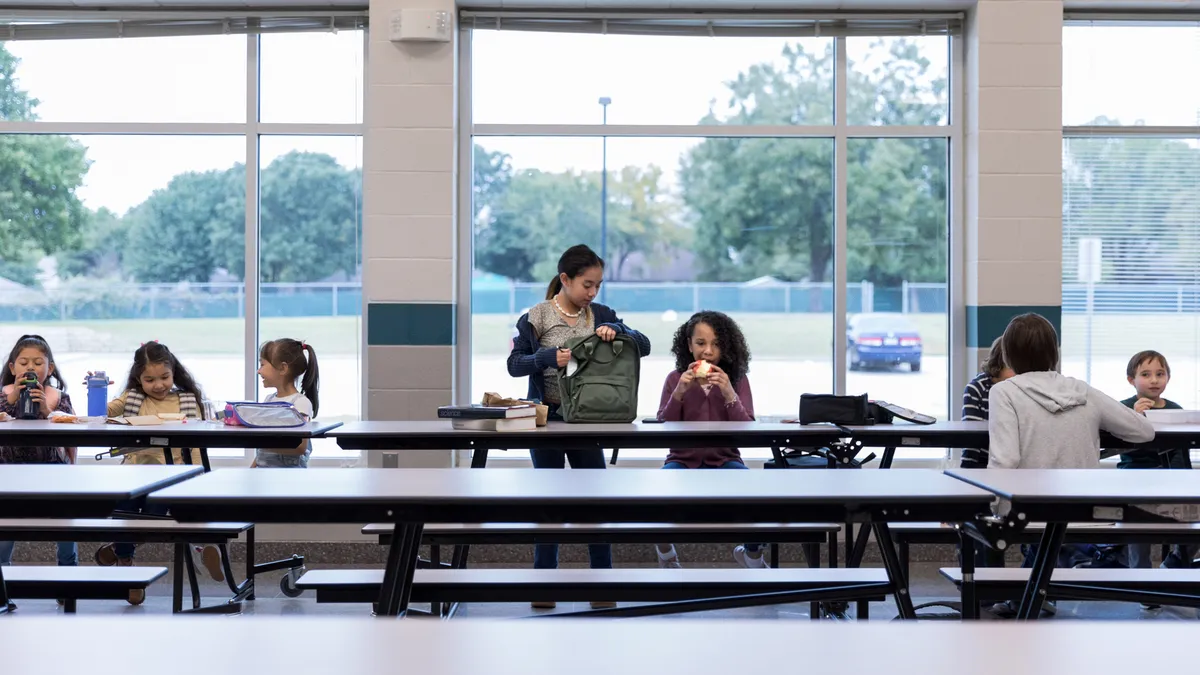Dive Brief:
- Massachusetts on Wednesday became the eighth state to permanently establish a universal school meals program when Gov. Maura Healey signed the state’s $56 billion budget for fiscal year 2024 into law.
- The final budget includes $172 million for universal school meals across the state. Massachusetts’ new policy follows in the footsteps of those in California, Colorado, Maine, Michigan, Minnesota, New Mexico and Vermont.
- As more states continue to eye opening up free school meals to all children, Massachusetts anti-hunger advocates are celebrating. The historic move “will have a lasting impact on generations of students to come,” said Erin McAleer, president and CEO of Massachusetts nonprofit Project Bread, in a statement.
Dive Insight:
Five of the eight states that have passed universal school meal programs did so this year. Minnesota and New Mexico enacted their policies in March, with Vermont following in June, Michigan in July and now Massachusetts.
The growing momentum for free school meals at the state level follows in the wake of the June 2022 expiration of congressional waivers allowing universal school meals during the pandemic.
Research shows when the waivers lapsed, student meal participation rates took a hit. A July study by the Food Research and Action Center found 54% of 91 large school districts reported a decrease in both breakfast and lunch participation.
Meanwhile, President Joe Biden’s administration has pushed to begin a pathway toward serving free school meals nationwide to 9 million more students by 2032.
As part of the White House’s efforts, the U.S. Department of Agriculture is considering a final rule — expected to be released in April 2024 — to expand free meals for all students attending high-poverty schools. The USDA proposal would increase access to the Community Eligibility Provision, which allows high-poverty schools to serve free school meals to all students without requiring applications for eligibility.
Even as federal and some state leaders work toward a goal of serving universal meals nationwide, concerns about sustainably funding such a policy remain.
At the state level, Vermont’s universal school meal law passed without Gov. Phil Scott’s signature. Scott, a Republican, defended his decision based on the fact that state property taxes would be used to finance a policy benefiting affluent families along with low-income families.
“This will be paid for by all Vermonters, including those with low incomes,” Scott said. “That’s not progressive education funding policy, it’s regressive policy that hurts the very families we are trying to help.”
Just before the federal pandemic-era waiver expired in June 2022, key education lawmaker Rep. Virginia Foxx, R-N.C., also spoke against continuing universal school meals. Addressing the House floor, Foxx said federal spending on such programs contributed to inflation. Foxx is chair of the House Education & the Workforce Committee.













